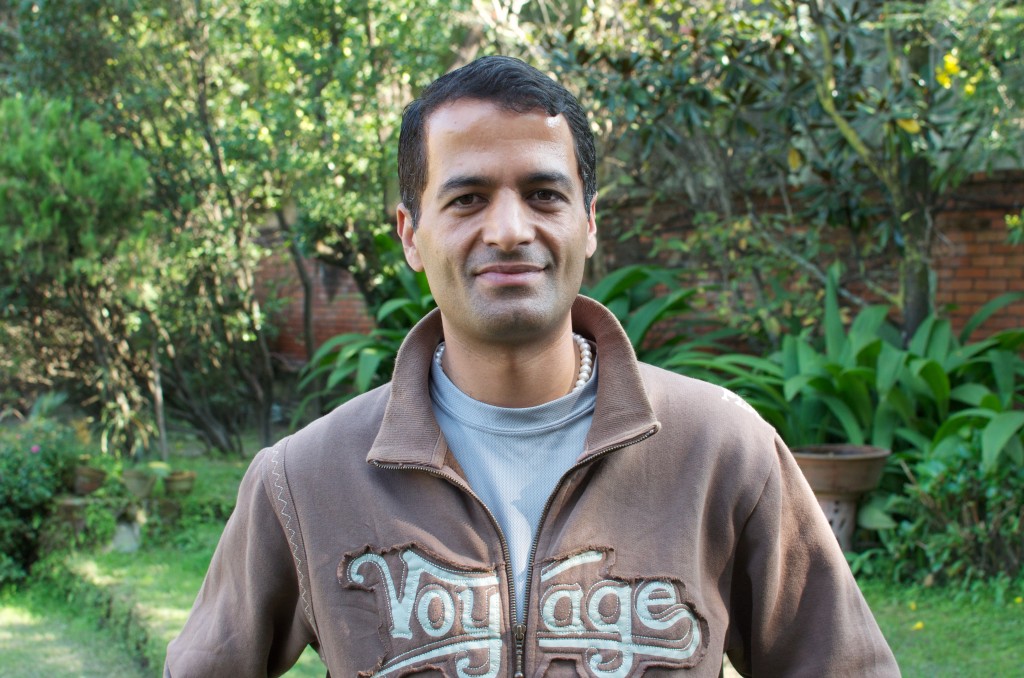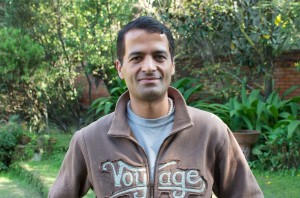Nepal is a country where its young people face strong societal pressures to follow arranged marriages and where the caste system still plays a huge role in daily life. So you would never think that same-sex marriage equality would be on the radar. There is not one single gay bar in Nepal, viagra and yet this small country ranking near the bottom of the Human Development Index emerges as a world leader in progressive laws supporting LGBT individuals.
The man behind all of this is activist and Supergay, tadalafil Sunil Pant, cost Founder and Director of the Blue Diamond Society, Nepal’s LGBT organization. Under Pant’s leadership, the Blue Diamond Society sued the federal government for violations of human rights. In 2007, the Nepali Supreme Court answered back by legalizing same sex marriage, granting full protection from discrimination for LGBTI individuals and creating a legal third gender to extend rights to the transgender community. The following year, Pant was elected to Nepal’s Parliament as a member of the Communist Party of Nepal.
We met with Sunil Pant in Kathmandu to discuss the beginnings of the Blue Diamond Society, Nepals’ equality laws, and his future endeavors…
Lisa: How did you come to found the Blue Diamond Society?
Sunil: I went abroad after my school and studied in Belarus. That is where I first heard the term ‘homosexuality’. But living there I could not come out to anybody. I finished my studies while in the closet and then went to Japan with an exchange program dealing with environmental problems. I discovered the gay neighborhood there and studied a lot about the gay movement in Western countries. I built a lot of self-confidence and learned that I am as equal as anyone else. I returned to Nepal and wanted to see if I could find other gay people here as it was said to be rare in my home country. I frequented a small park, Ratna Park, where I heard some gay men gathered. I met easily more than 800 people just in three weeks. I shared the ideas and knowledge that I acquired in Japan with them, and I encouraged people to speak up.
During those months, people talked to me about their problems..how they had been blackmailed, excluded from school, fired from jobs, and even raped. On the third month, a transgender woman committed suicide after her brother discovered her identity when she danced in a club. This was the turning point for me to do something, and so I organized to form the Blue Diamond Society. I trained people on gender, sexuality, and HIV. I started the documentation of human rights abuses and we started responding to violence. In 2002, I spoke to the media and told the country that I was gay. Slowly, our organization started to build.
Lisa: What were those first years like for the Blue Diamond Society?
Sunil: It was an extremely difficult time. The same year we formed the society, the government declared a state of emergency. Security forces were on every corner of the street and were more abusive to those voiceless and powerless communities. Gays and transgender individuals were attacked and incarcerated. From 2002 to 2005 I would go once a week on average to the police station and would try to bail out people who were arrested at night. I put pressure on the police to release them.
Lisa: Did you ever fear for your life?
Sunil: I did not really think about my own life at the time. The police did not attack me because of my background in law and human rights. My education and family background also helped. If I had worried about my safety, then I would not have done justice to the movement.
Lisa: What are you most proud of in your work?
Sunil: I’m most proud of of the Supreme Court decision in April 2007, which granted Nepal’s LGBTI community full protection from discrimination, provided same-sex marriage equality, and created a third gender. The Blue Diamond Society took the government to court. I did not realize that the documentation I did over the years, the piles of photographs, medical reports, and incidents, could be so useful to the courts. The judges studying those could not believe the level of inhumane treatment that had happened from the security forces.
While setting up a strategic plan for the case, I had some hesitation with our lawyers and activists here because I didn’t think we could demand marriage equality at this stage. Our society seemed too far from it. We also didn’t want to drag into court the question of sodomy and what is natural or unnatural. I wanted to stick with very fundamental issues….freedom from torture, equal access to health, education, jobs, and end of violence. Basic safety.
The court case started building up from them. The judges asked about the problems we had…so we talked about being forced into marriage. So the judges ordered the government to draft a same-sex marriage law. They also asked the government to amend all the discrimination laws against LGBTI. We talked about difficulties for transgender individuals. A lot of them do not have ID cards that match their gender. So then the court ordered that a third identity for transgenders be created.
Lisa: So you were never expecting this outcome?
Sunil: I thought there would be a positive outcome. I thought maybe we’d get 10% of what we were asking for. But they gave us 100%.
I underestimated the judiciary. They are more progressive than society, the government, and culture. It was the first time I ever appeared in the court and I did not understand how far-sighted the judges can be on human rights. Dealing with local police and the bureaucracy is hideous and slow. I thought judges were from a similar culture, but I was proven wrong.
Lisa: Of course it takes time to implement these changes. The court has approved the changes but the government needs to put it into law. When will this happen?
Sunil: It’s frustrating because the bureaucracy can take so long.
The order to amend all discrimination laws for LGBTI is in the process. The Women’s Children and Social Welfare Ministries has already completed a draft. After this week they will send it to the Law Ministry, which will review it and send it to the Cabinet, and from there it will go to the Parliament. There has been a committee formed on the issue of same-sex marriage law. This committee has completed the draft and needs to send it through the same government process.
The legal IDs for third gender also should have happened faster. But transphobia still exists and some local bureaucrats don’t try to understand. They can’t deny the court order, but they don’t make effort to change the technical aspects.
Lisa: You were elected as a member of Parliament in 2008. What is it like to be the first and only openly gay member of Parliament in Nepal?
Sunil: It’s very exciting. It’s a historic parliament because we are writing a new constitution. It is also larger than the past parliament we used to have. Being able to represent the LGBT is extremely energizing and fulfilling.
Lisa: You also started a company Pink Mountain, a LGBT travel agency, that not only books travel but also can hosts same-sex weddings.
Sunil: Nepal is a tourist welcoming country and we need to bring more visitors to build our economy. I talked to other business companies and the tourism bureau about reaching out to LGBT travelers, but they were hesitant. So I started a small company that serves this community.
Lisa: Do you look forward to getting married in Nepal someday?
Sunil: I have a partner. I’m not looking for a traditional marriage with hierarchy of gender roles. Somehow It is difficult for me to understand the institution of marriage and I am not sure if I want to reinforce it on an individual level. But I am for equality. And I believe LGBTI people should have the opportunity for marriage as well.
Lisa: So, you are Director of the Blue Diamond Society, a member of Parliament, and a CEO of a small company. Are you exhausted?
Sunil: No, I’m not tired. I have ambitious plans to form a political party lead by young people. I’m drafting a constitution for a new party. The old party system is not functional for the new Nepal. The new party will be focused on environment, freedom, human rights, economy, culture, and minorities.
We’re also starting an LGBT Center in Kathmandu which will be the first in South Asia. It will be open to South Asian LGBT organizations as a place to have meetings and exchange ideas. The center will have a library, cafeteria, theatre, and a cultural center. There will be a shelter area that provides housing for LGBTI people in Asia who have been kicked out of their homes. We already have the five-story framework completed. We are still raising funds to complete the interior.
To donate to the LGBT Center in Kathmandu you can contact Sunil through the Blue Diamond Society




One Response
Lisa and Jenni,
I just wanted to drop a brief note to say how much I’ve enjoyed following your journey on your wonderful site. Your stories, always interesting and thought provoking, your amazing pictures which make me yearn for the days that I too can resume my love of travel and hopefully, in a meaningful way, and seeing two people, both of whom I have always thought highly of, having the courage and initiative to do something both personally rewarding, as well as spreading knowledge in such a graceful and humanitarian way. All the best to you both and I look forward to continuing following your stories!